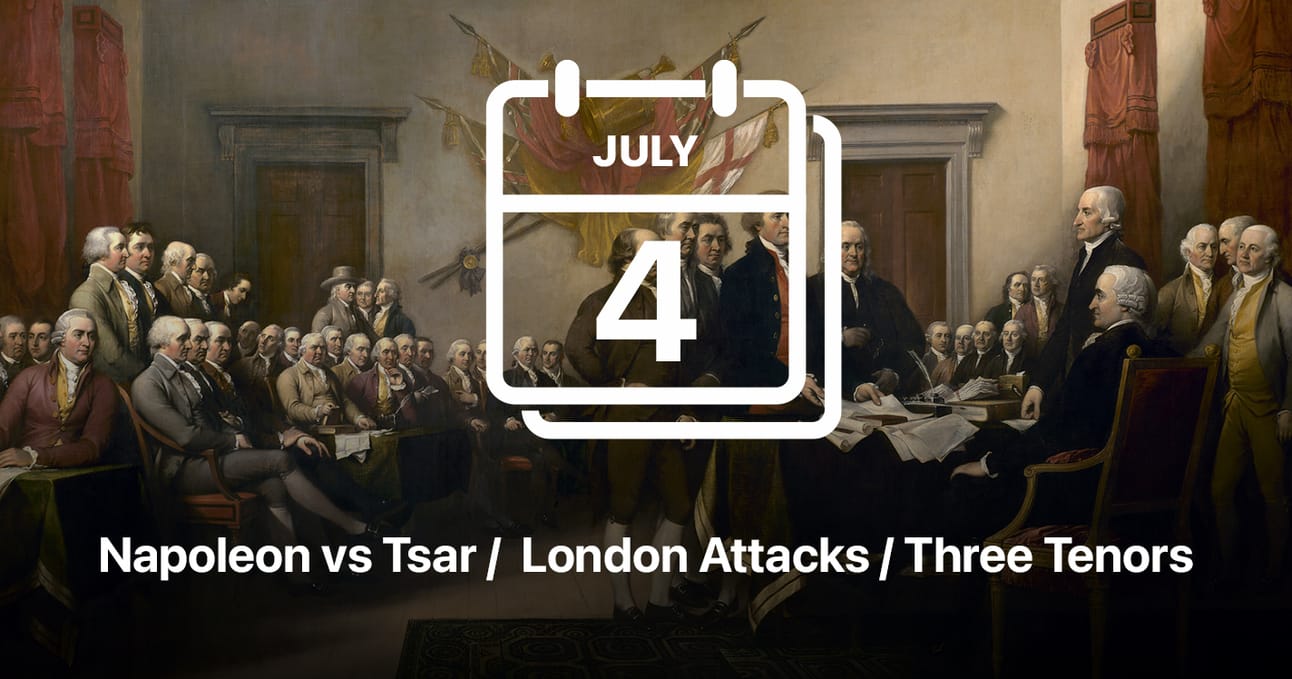- Flashback
- Posts
- Fireworks, Freedom, and Flashbacks
Fireworks, Freedom, and Flashbacks
July 4th Special: Welcome to Flashback!

Every day holds countless hidden stories—moments when history was quietly shaped, loudly celebrated, or sometimes awkwardly forgotten. Flashback brings history alive through these fascinating snapshots.
Today, as America lights up the skies with fireworks and grills blaze across backyards, we pause for a curious question: Are we actually celebrating the right day? Yep, the 4th of July might just be two days late to its own party.
So grab your coffee, settle in, and join us as we journey back in time—because every day deserves to be remembered.
Let’s dive in!
🗓️ Time Machine

Your Daily Time Machine, Unlocked
Go ad-free, unlock the Time Vault (complete archive), wear a quiet Premium Badge, and take your place on the Wall of Thanks.
Already a paying subscriber? Sign In.
Inside the Vault:
- • Ad-Free Reading — keep the story, lose the ads
- • Time Vault Access — full archive (members-only)
- • Premium Badge — a quiet mark of taste
- • Wall of Thanks — your name in our hall of fame (Yearly: immediately; Monthly: after 3 months)
Reply